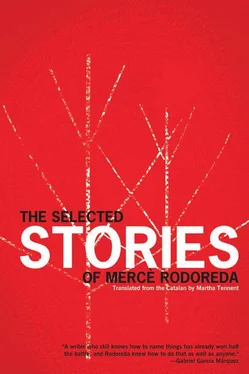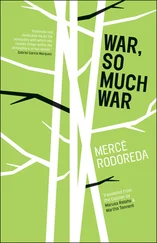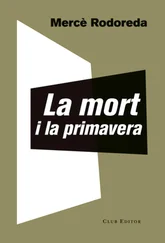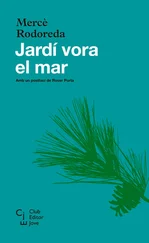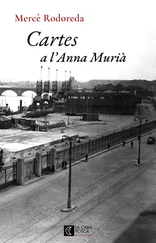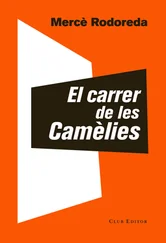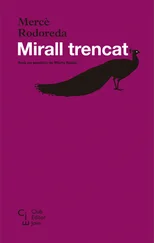The man who had turned on the light returned to the bed, racked with worry, and asked: “Are you saying it’s time?” The tiny kitchen, just three meters away, had permeated the sheets with the smell of boiled vegetables and a sauce of tomato and onion. A tired voice rose from beneath the sheets: “First put some water on to boil, then go knock on the druggist’s door and ask if he’ll let you phone the doctor.” She looks so pale , the man thought to himself. He had never seen her so pale, with such sunken eyes. On the stairs the cat resumed, his meows filled with desire. Order, order, order , he told himself, in an attempt to stop the trembling in his hands. He wished he could control them. He used half a dozen matches before he could finally light the gas stove. By the time the orange-blue flame ignited, the atmosphere was unbreathable. I should have turned on the gas after I lit the match, not before. Using a blue jug he filled a pot with water and placed it on the stove.
“Maybe you should open the window a moment.” Another moan followed. He walked over to his wife, took her hands to encourage her. He didn’t know what to say. She looked anxiously at him, her face covered with drops of sweat. “Four children.” He could feel how tense her hands were. “At our age,” she stammered. All of a sudden, he felt the need to move more quickly: open the door, run down the stairs, knock on the druggist’s door, pick up the telephone, and implore the doctor to come right away. But he didn’t budge. It was almost as if the three children in his life were holding him back. One in Madrid, a member of Franco’s Falange party; another a left-wing exile in Mexico; the third — a daughter — in Reggio, seduced by an Italian officer. My interior contradictions expressed in the flesh , he often thought. The last child now eighteen and the fourth about to be born. A feeling of anguish, the kind that precedes nausea, ran though his body. He felt grotesque. During the day, the gas flow was gentle, but now, in the heart of night, it streamed out, making a buzzing sound. The straight flames reached up the sides of the pot, wavered, creating blue reflections. The water was beginning to rumble. Coat, stairs, telephone. . order, order, order. “I’m going now. I’ll be right back,” he said, but before leaving he went over to the table and cleared away his books and papers. The Terrible Consequences of Truth. He had been a geography teacher in a lycée in Barcelona before going into exile, where he had begun writing. When he got off work — he was a dish dryer in an exclusive restaurant — he would surround himself with books and submerge himself in his writing. When he resurfaced he felt entranced. The original title of the book was The Terrible Consequences of the Desire to be Truthful . But then he had decided on the other. Truth as the dissolution of all human relations. Truth as the negation of all authentic values. Salvation achieved through systematic deception, applied with a radical spirit, could be transformed into truth. Man could become truthful by means of a lie, in a way that was more real than sincerity. These somewhat confusing ideas nevertheless possessed a coherence: “Order, order, order.” His rather verbose study had led to another, entitled “Toward Freedom by Means of Dissimulation.” I simulate ergo I am free. This was the point of departure for his thesis. “Order, order, order.” He cleared away his papers and books, put his coat on over his pajamas, walked over to the bed, glanced sadly at his wife, and went out onto the landing.
The stairs gave off a sickening stench of garbage, the sour odor of something rotten. He felt his way down the stairway in the dark. To save electricity the light hadn’t been turned on since the war began. The wooden steps were worn and creaked beneath his feet. The silence of night made the creaking resound, much more than during the day, when children and neighbors coming and going filled the stairs with life and a noisy bustle. “This is what France is,” a Frenchman had told him once. “Not Paris or the luxury of the few. But unhygienic houses, streams of dirty water in the streets, water closets — a euphemism — under the stairs at the entrances to buildings, for the use of neighbors and passers-by, chamber pots. . running water a luxury. Voilà.”
He breathed laboriously when he reached the last step. Then, just as he was feeling reassured, he stumbled against a soft body. This wasn’t the first night that a drunk had slept on the hard floor in the entrance hall; it was a common occurrence in this working-class neighborhood. Making an effort to maintain his balance, he took a huge step across the obstacle, which groaned gently, removed from the world by sleep.
The street was dark. On the other side, seven or eight houses further up, a red light attracted his attention. A stealthy shadow was visible as it crossed beneath the light and disappeared into the doorway. “A German?” For the last few nights, groups of two or three German soldiers had walked down the street, their boots resonating on the pavement, attracted by the light despite the sign on the door that read “Verboten.”
At the top of the stairs two cats started a furious fight. They hissed and growled furiously, no doubt all tooth-and-claw and arched backs. Suddenly, one of the cats, mad with fury, its eyes lit, brushed against his legs and crossed the street. It frightened him. He had been mesmerized by the starry night and the moon that cast steely patches on the roofs and houses across the street. All the splendor of the constellations shimmered in the dark sky. It was offensive, just as a well-lit palace at the end of a park might seem to a passing pauper. He couldn’t admire it any longer; he had to knock at the door, do something. The druggist was close by. He heard the sound of steps and ducked back inside his building, closing the door slightly for fear that his light-colored pajamas would give him away. For an instant he saw the outline of a coat beneath the red light. Then it disappeared. He thought he heard a scream and returned to reality. He had to move, had to knock. Cautiously he went out, as the cat slipped back inside between his legs, fast as a curse.
“Knock,” he said to himself. The wrought iron door shook, though he had only used his palm. No answer. He waited a few minutes and knocked again, harder this time. He was afraid he would wake the neighbors, who would lean out their windows, shouting crude insults at him. How could a foreigner dare to disturb their rest in this way! A husky voice asked from behind the iron door, “Who is it?” “Your neighbor.” “Which one?” The question was disconcerting. He chose the simplest answer. “My wife’s sick. Could I use your phone?” An angry voice responded, “The phone’s been out since morning.”
Not sure what to do, he returned to his room. At the foot of the stairs, he again stumbled against the sleeping, panting obstacle. On the second floor, he passed the fuming cat. He heard voices inside and entered. The neighbor across the landing and the lady from downstairs were there. He realized they were waiting impatiently for him. His news (“The phone’s out.”) was greeted by expressions of disappointment. She looks so pale, so terribly pale. The sheet was rising and falling beneath her belly. It was as if he could see it emerging — naked, majestic and victorious — from a body wasted by years and grief, framed by bony, waxen shoulders, angular sides, emaciated arms and thighs. The body that had attracted him years ago. The group of women deliberated in a low voice. The lady from downstairs found a solution, “As far as I know there’s only one other telephone in the neighborhood.” “Whose?” asked the woman from next door. “The one at Number Fourteen.” “Number Fourteen” was the name all the neighbors in the building used for the house with the red light. “Hurry!” “You have to change your clothes.” “Only the trousers.” A spasm of pain rocked the bed. She’s so pale, so pale. Almost without realizing, he found himself behind the folding screen, thinking: Order, order. An energetic hand passed him the clothes he needed. Once again: stairs, dark, obstacle, splendid night.
Читать дальше
